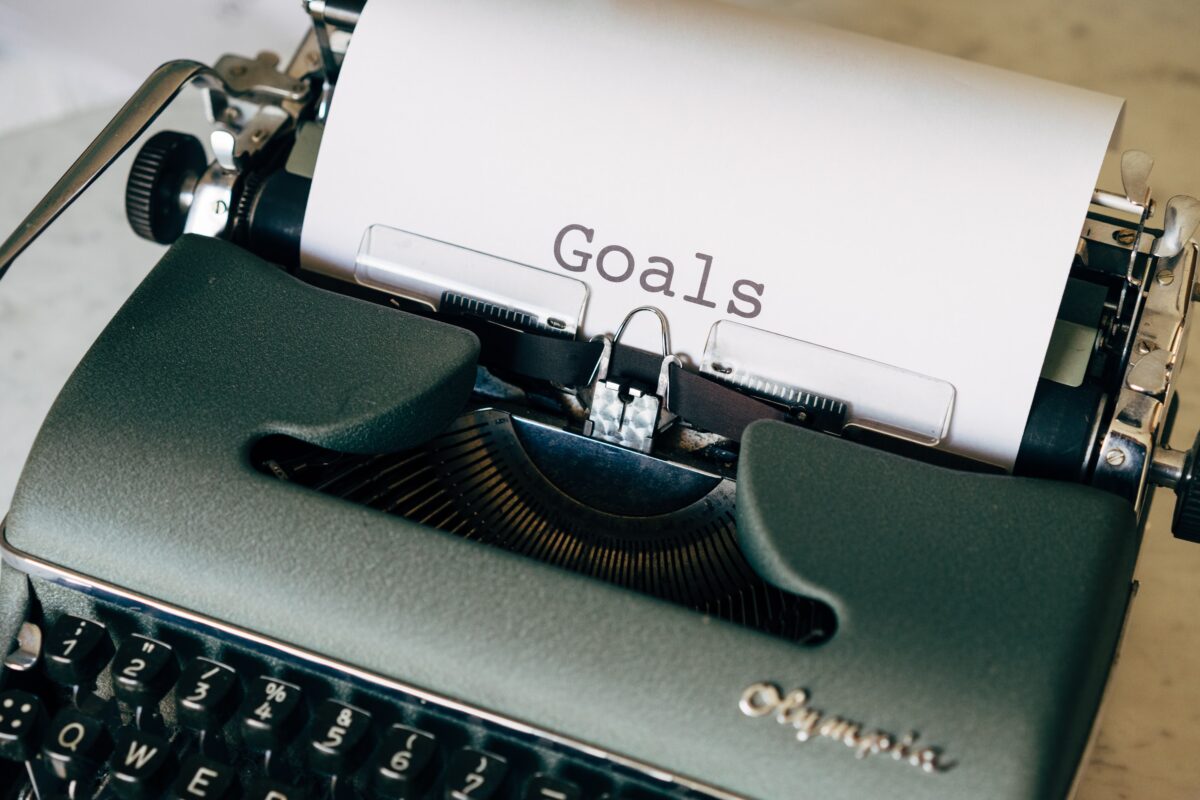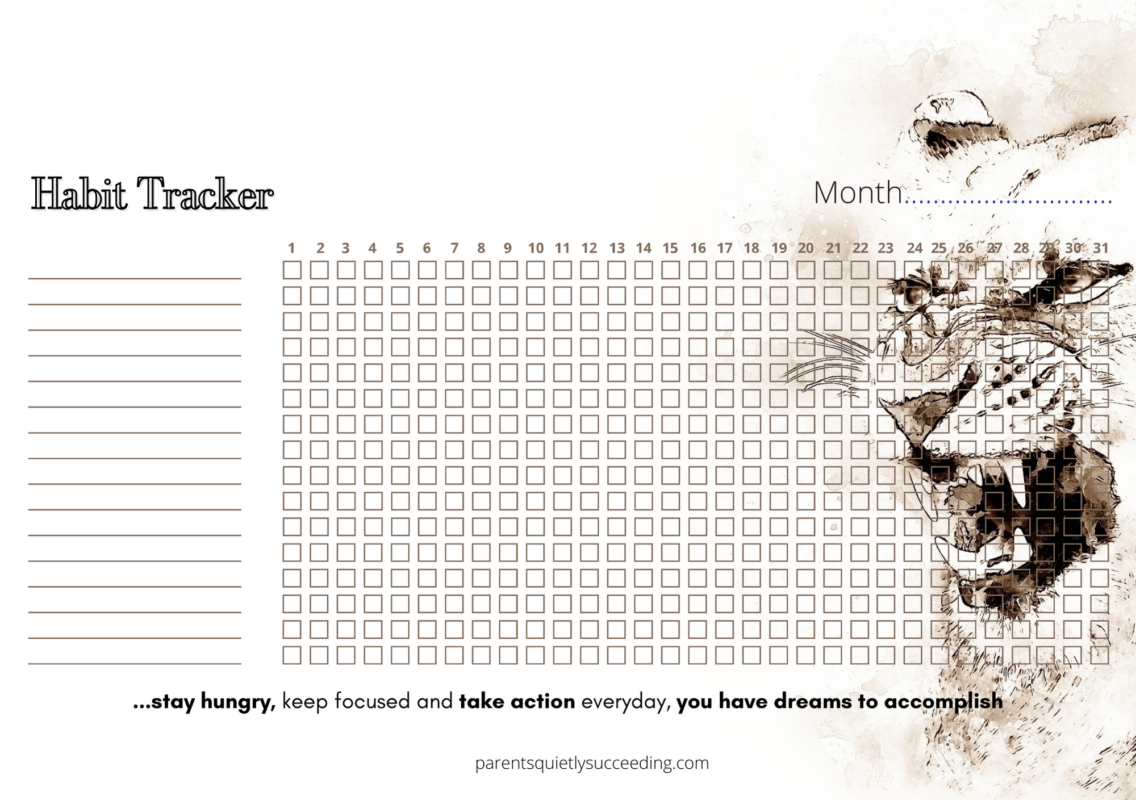Well Being
Setting and Developing Goals

Introduction
What are the benefits of setting goals and what are some good goals to set?
As a main carer, you are your child’s first role model, from hero dad to princess mom.
It’s important therefore that we become the best version of ourselves and effective goal setting with a few good habits, will help us do just that.
Of course you don’t have to be a parent to set goals and resolutions and here the question is best put by Jim Rohn who asked, ‘why not grow, why not be all you can be?’
With that in mind, why not now?
Rise of the Machines: The Industrial Revolution
Beginning with the industrial revolution, we live today in a world driven by the concept of ‘efficiency’. The desire to achieve as much as possible, as quickly possible, with as little waste as possible.
Machines would do more and do that more better than us.
This idea once confined to manufacturing slowly seeped into our wider culture as we began to ask for ever more efficient solutions to the issues we faced.
This led to the mass creation of ‘labour saving devices’ e.g. dishwashers, micro wave ovens, phones etc. Such devices would bring about a golden age of leisure.

Critically, these ideas were ready made (and in part driven by) that part of us that craves, ‘instant gratification’ (S. Freud). This is seen in our current rush for ever faster connection and download speeds.
Of course there’s nothing wrong with efficiency and wasting time and resources is clearly just plain wrong.
However living in a world dominated by these ideas, we fall prey to the illusion whatever we want, we can get, relatively quickly, relatively easily.
Enter the ‘quick fix’ culture.
Why Can’t We Achieve our Goals?
Well, effective goal setting may not be your fault.
It’s not that I’m letting you or me off the hook, ultimately we can, (and we’ll show you how later), but spoiler alert it takes a great deal of effort.
Popular personal goals include…
1. Health (exercise more/lose weight/stop smoking etc)
2. Learn a new skill (instrument, language etc)
Taking the first on our list for example, conditioned as we are by todays quick fix culture, we are led to believe we should be able to loose weight relatively quickly and keep it off.
In reality, the true process of loosing or maintaining our weight at a healthy level is directly counter to our modern quick fix culture that would offer us a tasty shake or bar, over the change process.
So what can we do?
Goal Setting for Quiet Success
The benefits of effective goal setting requires a new mind set.
Fundamentally we must resign ourselves to the idea of no quick fixes and embrace the true nature of change.
Consider these 7 steps to personal goal setting…
1. Aim
What do you want, what skill have you always wanted to develop?
This may or may not be easy to answer but it’s important to consider. The time you put into an activity, is time taken from somewhere else, time that you cannot get back, so decide carefully.
2. Desire
Once you have decided on your goals, desire will help connect you ‘emotionally’ with your aim. Notice I’m not talking about a wish or a want but desire.
Desire is a different animal.
How important are your chosen goals to you, what will it mean for you to achieve the goal?
Crucially your desire has to sustain (motivate) you through your journey of crippling self doubt to eventual change.
So whilst it’s important to experiment, if you don’t really (really) want to e.g. play the guitar, re-cycle more, eat more vegetarian meals, don’t start.
3. Commitment to your goals
You’ve decided on your goals, now it’s time to make, a deep abiding commitment to yourself but understand, achieving your goals will involve sacrifice.
Yes, you will have to give something up but don’t be put off by this, the only thing you may have to give up is 1/2 hours daydreaming for focused practice.
Here research by Killingsworth and Gilbert – A Wandering Mind is an Unhappy Mind, estimates on average we spend anywhere between 30% to 47% of any given day, daydreaming.
4. Belief
Believe you can and you’re half way there – Theodore Roosvelt
At a very deep level, believe you can make real progress toward your goals: get that ripped bod, that svelte figure, acquire that second language.
This is important not least because progress is not sequential or linear. We gradually become better yes but this involves set backs…frequent ones
…heart breaking, demoralising, crushing set backs.
However understanding this, that setbacks are a perfect part of the process, will enable you to get back on track following the enviable relapse.
You are not failing and you are not a failure.
If you have a cigarette on your journey to being a non smoker, a pastry on the way to being rear of the year or miss a practice session, see this as just a set back….focus on the war not the battle.
5. Actionable Goals
So, you have a clear idea about your eventual goals, you’ve done your research and you’ve got the equipment now it’s time to begin!
Here, begin small, I mean incredibly small, hold the vision but start small. Whatever the big dream, dial it right back and begin with the smallest, tiniest baby steps you can achieve.
It’s easy to get carried away with the initial idea but it is important to not rush. This will minimise the impact of taking on too much and feeling overwhelmed as this will sap crucial stores of commitment and belief.
The journey of a thousand miles begins with the first step – Lao Tzu
6. Reflect
No matter how small be proud and take time to acknowledge yourself for each step toward your goals.
Importantly, do not wait for anyone external to you to do this, so when no one is watching get some serious fist pumping done with a primal ‘come on!’.
This, (and other more calmer moments of reflection and affirmation), will strengthen your resolve whilst weakening the attachment to the behaviour you’re trying to change.
7. Time
So by now you’ll understand you have to be prepared to stick to the achievement of your personal goal over time. This is because change is a subtle often imperceptible process but don’t worry, trust the process.
Whilst questions remain on whether or not it takes 10,000 hours to master a skill, a point made popular by Malcolm Gladwell in Outliers, achieving your goal will undoubtably take time and lots of it.
Gradwell’s book was in part based on Karl Anders Ericsson’s findings The Role of Deliberate Practice in the Acquisition of Expert Performance.
Here Anders noted that while time was an important factor, it was the ‘quality’ of practice, that made the difference.
This key insight suggests it is necessary to bring 100% of you, to each and every practice session for improvements to be made, referred to as, ‘deliberate practice’.
OK a word on…

Goals and Habits
Habits are those pieces of behaviour we carry out with very little thought. This is why they work and what makes them so powerful. Habits take little to no mental friction to spark action.
With strong habits, you don’t have to spend as much time trying to convince or talk yourself, into going for a run or reaching for your guitar to practice.
Fortunately for us habits, can be developed and they can dramatically improve the quality of our lives.
Yet another popular misconception states it takes 21 days to form a habit taken from cosmetic surgeons’ Maxwell Maltz’s, 1960’s self-help book, ‘Psycho Cybernetics’.
Maxwell however, wasn’t actually talking about habits or behaviour when he wrote this. He was in fact referring to the approximate length of time it took his plastic surgery clients to adjust psychologically, to the outcome of cosmetic surgery procedure e.g. brow lift.
He states, ‘These and many other commonly observed phenomena tend to show that it requires a minimum of about 21 days for an old mental image to dissolve and a new one to gel’.
So whilst the author was reasonably clear our quick fix culture seized upon 21 as ‘the’ number of days needed to develop a new habit.
If you are persistent you will get it. If you are consistent you will keep it – Dave Hernandez
Since then, a more specific study on habits has been conducted by health psychology researcher, Phillippa Lally from University College London and in it claims, ‘…a new habit usually takes a little more than 2 months — 66 days to be exact — and as much as 254 days until it’s fully formed’.
A note of caution, it’s probably wise not to take any number too literally. We’re all very, very individual and it may take you or me 255 or 256 days or more or less. And will depend on how long we’ve have had the ‘bad’ habit and what the habit has meant to us.
More so, if we take this or any number as a given, go the course but retain the habit, there’ll be a temptation toward damaging self talk.
Habit Trackers: Do they work?
Broadly, yes they do.
There’s lots of them digital, as well as, analogue, ultimately it’s a matter of choice and what works for the you.
How trackers work?
1. By ticking off each day you have practiced your habit, you will have built up a visual record. An unbroken chain of ticks, which psychologically, we do not like to break, as it creates dissonance.
2. Trackers work further by providing direct positive feedback on your efforts toward your goal, like a receipt of doing.
3. And trackers provides us with that oh so good opportunity of checking an item of a list.
Keeping a habit tracker therefore prompts, reward and motivates us to continue on our path.
Conclusion
There’s more we could say and we’ll return to the theme of goal setting and self improvement throughout the year so look out for those posts.
To end with, we should note the change we seek should be challenging but in a fun way for when we enjoy the process we will arrive at our goal almost by default.
If you’ve made it this far you clearly serious about achieving your goals and to help we’ve created an exclusive PQS habit tracker which you can download below FREE.
Use this link to let us know your thoughts, goals and resolutions for this year via our comments page.
Be part of the community and follow us on Facebook and IG
Read our accompanying blog post Love: Why Your Self Care Matters
Email: parentsquietlysucceeding@gmail.com

References
Karl Anders Ericsson – The Role of Deliberate Practice in the Acquisition of Expert Performance
Killingsworth and Gilbert – A Wandering Mind is an Unhappy Mind
Phillippa Lally – European Journal of Social Psychology
James Clear — Atomic Habits
Charles Duhigg — The Power of Habits



